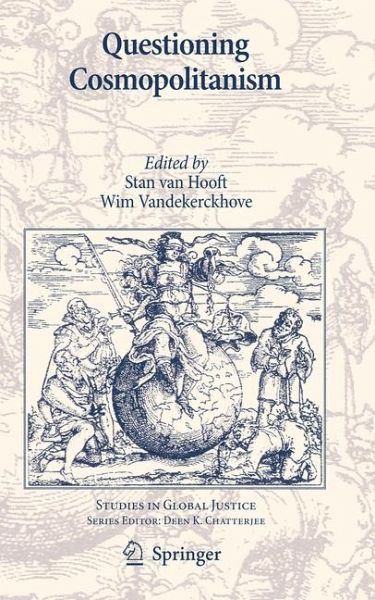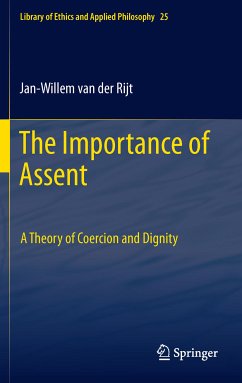
Questioning Cosmopolitanism (eBook, PDF)
Versandkostenfrei!
Sofort per Download lieferbar
72,95 €
inkl. MwSt.
Weitere Ausgaben:

PAYBACK Punkte
36 °P sammeln!
Wim Vandekerckhove and Stan van Hooft The philosopher, Diogenes the Cynic, in the fourth century BCE, was asked where he came from and where he felt he belonged. He answered that he was a "citi- 1 zen of the world" (kosmopolitês) . This made him the rst person known to have described himself as a cosmopolitan. A century later, the Stoics had developed that concept further, stating that the whole cosmos was but one polis, of which the order was logos or right reason. Living according to that right reason implied showing goodness to all of human kind. Through early Christianity, cosmopolitanism...
Wim Vandekerckhove and Stan van Hooft The philosopher, Diogenes the Cynic, in the fourth century BCE, was asked where he came from and where he felt he belonged. He answered that he was a "citi- 1 zen of the world" (kosmopolitês) . This made him the rst person known to have described himself as a cosmopolitan. A century later, the Stoics had developed that concept further, stating that the whole cosmos was but one polis, of which the order was logos or right reason. Living according to that right reason implied showing goodness to all of human kind. Through early Christianity, cosmopolitanism was given various interpretations, sometimes quite contrary to the inclusive notion of the Stoics. Augustine's interpretation, for example, suggested that only those who love God can live in the universal and borderless "City of God". Later, the red- covery of Stoic writings during the European Renaissance inspired thinkers like Erasmus, Grotius and Pufendorf to draw on cosmopolitanism to advocate world peace through religious tolerance and a society of states. That same inspiration can be noted in the American and French revolutions. In the eighteenth century, enlig- enment philosophers such as Bentham (through utilitarianism) and Kant (through universal reason) developed new and very different versions of cosmopolitanism that serve today as key sources of cosmopolitan philosophy. The nineteenth century saw the development of new forms of transnational ideals, including that of Marx's critique of capitalism on behalf of an international working class.
Dieser Download kann aus rechtlichen Gründen nur mit Rechnungsadresse in A, B, BG, CY, CZ, D, DK, EW, E, FIN, F, GR, HR, H, IRL, I, LT, L, LR, M, NL, PL, P, R, S, SLO, SK ausgeliefert werden.












